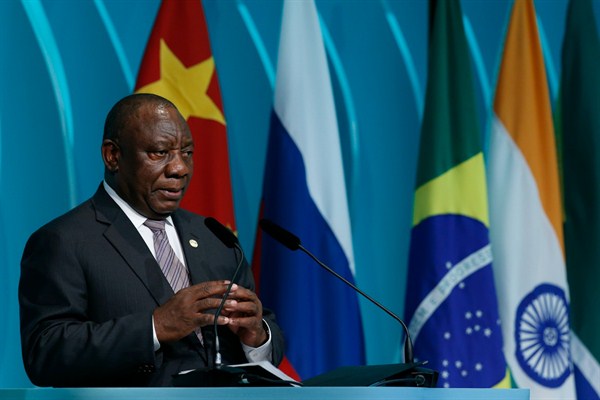South Africa assumed the annually rotating chair of the African Union earlier this month, its second term since serving as the organization’s inaugural chair following its founding in 2002. South African President Cyril Ramaphosa took over the role from his Egyptian counterpart, Abdel Fattah el-Sisi, on Feb. 8 at the AU’s annual summit in Addis Ababa.
The position adds to South Africa’s already deep engagement in multilateral organizations. It is currently in the middle of its third two-year term as a non-permanent member of the United Nations Security Council, and is a member of both the G-20 and the BRICS grouping, along with Brazil, Russia, India and China. South Africa’s Foreign Ministry views this convergence of diplomatic roles as an ideal opportunity to raise the country’s international profile and to project its influence to a degree perhaps not witnessed since the era of Nelson Mandela. South African officials also see it as a means of enhancing Ramaphosa’s global stature.
Since taking office in February 2018, Ramaphosa’s main focus has been on domestic affairs, with an interest in foreign policy only as a means to build the trade and investment connections necessary to strengthen South Africa’s ailing economy. Chairing the AU will compel Ramaphosa to be more actively involved in diplomacy, representing Africa in international forums and promoting economic development and conflict resolution on the continent. However, the AU chairmanship is a double-edged sword for South Africa, which could just as easily get bogged down in the complexities of African politics and fail to meet international expectations, exacerbating the already considerable disquiet at home.

